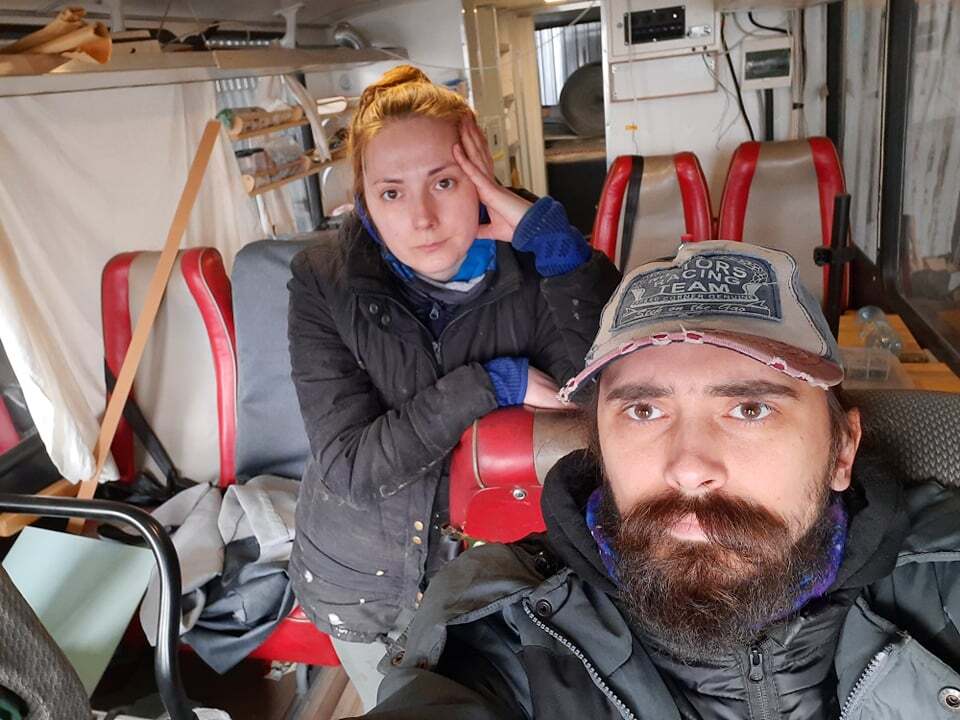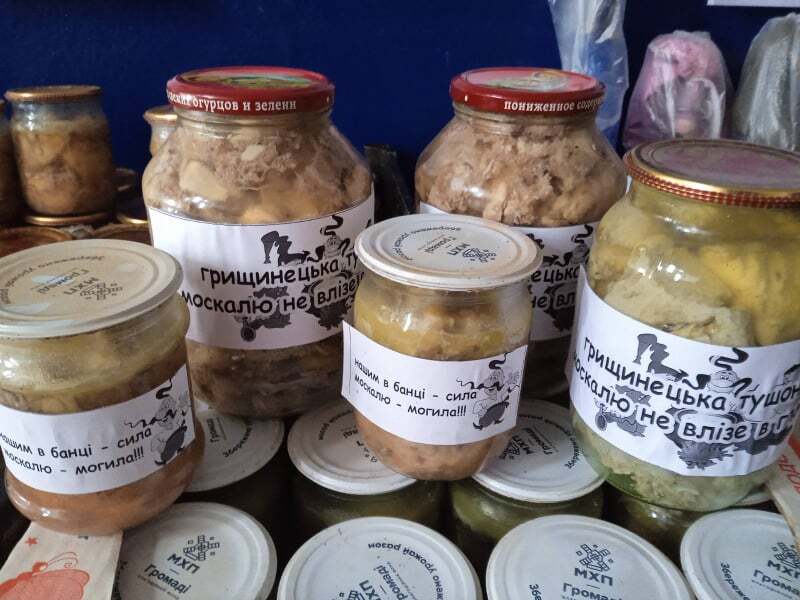Oleksandr Dzyuba would have never thought that he would be spending his days making Molotov cocktails to use against an invading Russian army.
But that is now his reality, volunteering with others and creating defensive weaponry in a small town 100 km from the Ukraine capital, Kyiv, fearful of when the war engulfing his nation will appear at his doorstep.
We all here are warriors and we’re protecting our lands…preparing the Molotov cocktails and welding the anti-tank barriers…we (are) ready to stop Russians here,” Dzyuba says.
“We want back our daily routine.”
Oleksandr Dzyuba

It’s a long cry from just a few years ago, when he was working on his tech company, Adtena, in the Digital Media Zone at Ryerson as a part of a program that welcomed international entrepreneurs and exposed them to Toronto’s startup scene.
Dzyuba, 34, and his wife, Olesia Yatsenko, 33, have been living out of a home on wheels they rebuilt in the town of Kaniv for the last three months and which they originally planned to use for a trip celebrating their five-year anniversary.

But the Kyiv-born couple’s plan to be on the road pivoted when Russia launched a full-scale attack on Ukraine on Feb. 24 and began its path towards the country, triggering a panic and fear amongst the civilians of Ukraine.
“I have no places to stay here, so we spend nights in the closest village,” he says.
Unsure of what is happening outside of their location, Dzyuba and others are constantly trying to stay updated. “You try to check the news all the time, when you can reach your telephone or something, and looking at foreign news,” he says.
Over the past nine days, Dzyuba has stayed in contact with the On The Record team, providing insights on how things in his part of Ukraine are unfolding.
In Kaniv, everything has continued to stay calm, but it has become increasingly difficult to get gasoline and other supplies. “All the most necessary goods are available, albeit in small quantities, and this is more than enough for a healthy diet,” Dzyuba says.
Here we have nothing to complain about — there is a war going on.
Oleksandr Dzyuba
Military planes and anti-air systems can be heard throughout the region, signalling warnings of incoming threats several times a day, according to Dzyuba. “My mother and sister in Kyiv (are) hearing it like 10 times per day or 20 times per day, (warning that) some rockets (or) something (is) incoming,” he said in one of his first reports to OTR on March 2.
He has also been able to pick up some information about the progress of the war in other parts of the country. He says he’s received information from friends that their relatives in Mariupol, in the southeast of the country, have been in a bomb shelter for many days, with nothing to drink but collected rainwater.
Oleksandr Dzyuba
“We are very glad that at the moment we do not hear other sounds.”
Ukraine’s president,Volodymyr Zelenskyy, has declared martial law, called on citizens to come forward to defend the country and prohibited all Ukrainian men between 18 and 60 from leaving.
Dzyuba says he wouldn’t have left anyway because it would feel wrong to run to neighbouring countries while his friends and family stayed behind. “What (would) I feel if I just (ran) away from here while a lot of my family members (are) all around Ukraine? Some of my friends are in the military defending us so it’s not a choice (for me) to leave,” he says.
Volunteers in the city are also doing what they can by organizing the local food and water supplies. Preparing themselves for a sudden isolation, they have built up supplies of food that they can use and that they could give to the military.

Dzyuba has also been able to gain a little insight into the propaganda war being waged in Russia. He has a YouTube channel dedicated to the building of his motorhome, with about 5,000 followers.
“We were surprised that hundreds of our longtime subscribers from Russia, with whom we have been communicating for years, believe and are trying to prove to us that ‘there is a neo-Nazi state power in Ukraine,’ that ‘Russia does not attack civilians’ and ‘does not shoot at cities.’” He says he also hears his followers adopt the language of Russian president Vladimir Putin in saying that what is happening is “not a war, but a special peace operation” and that Ukraine is developing nuclear weapons and oppressing the Russian-speaking population in the country.
“And it’s extremely hard to convince them of the opposite even with all the facts, and crime evidence,” he says.
Despite that propaganda and despite the ongoing war, Dzyuba say: “Ukrainians right now (are) really united.”
Nevertheless, he still worries about the future. “When the war ends it will not be easy to recover our economy, to rebuild our cities.
“And for sure you can’t take back all the lives.”
Oleksandr Dzyuba


